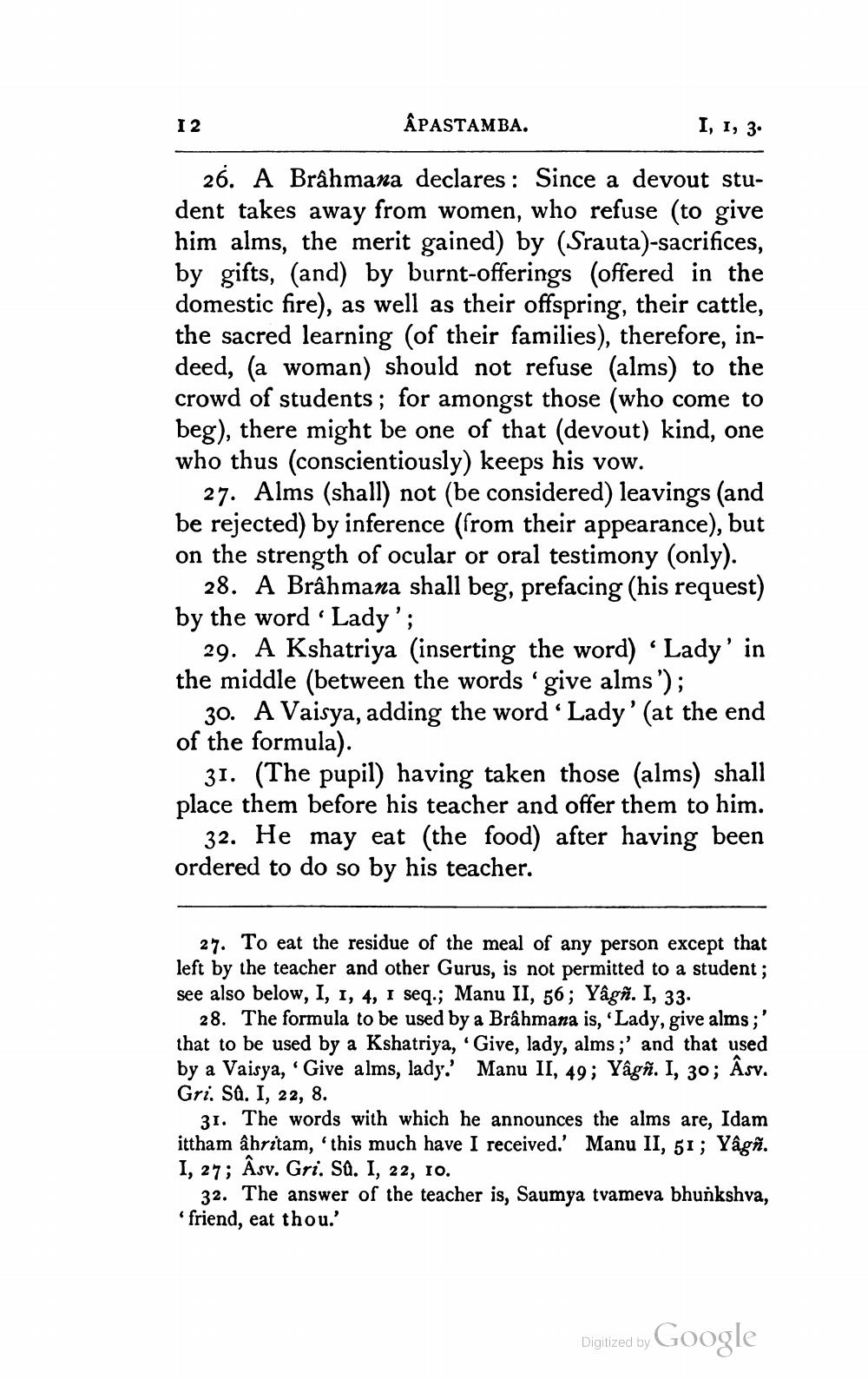________________
I 2
ÂPASTAMBA.
I, 1, 3.
26. A Brâhmana declares : Since a devout student takes away from women, who refuse (to give him alms, the merit gained) by (Srauta)-sacrifices, by gifts, (and) by burnt-offerings (offered in the domestic fire), as well as their offspring, their cattle, the sacred learning (of their families), therefore, indeed, (a woman) should not refuse (alms) to the crowd of students; for amongst those (who come to beg), there might be one of that (devout) kind, one who thus (conscientiously) keeps his vow.
27. Alms (shall) not (be considered) leavings (and be rejected) by inference (from their appearance), but on the strength of ocular or oral testimony (only).
28. A Brâhmana shall beg, prefacing (his request) by the word · Lady';
29. A Kshatriya (inserting the word) · Lady' in the middle (between the words 'give alms ');
30. A Vaisya, adding the word 'Lady' (at the end of the formula).
31. (The pupil) having taken those (alms) shall place them before his teacher and offer them to him.
32. He may eat (the food) after having been ordered to do so by his teacher.
27. To eat the residue of the meal of any person except that left by the teacher and other Gurus, is not permitted to a student; see also below, I, I, 4, I seq.; Manu II, 56; Yagñ. I, 33.
28. The formula to be used by a Brâhmana is, 'Lady, give alms;' that to be used by a Kshatriya, Give, lady, alms;' and that used by a Vaisya, 'Give alms, lady.' Manu II, 49; Yâgñ. I, 30; Âsv. Gri. Sa. I, 22, 8.
31. The words with which he announces the alms are, Idam ittham âhritam, this much have I received.' Manu II, 51; Yagñ. I, 27; Âsv. Gri. Sů. I, 22, 10.
32. The answer of the teacher is, Saumya tvameva bhunkshva, 'friend, eat thou.'
Digitized by Google




